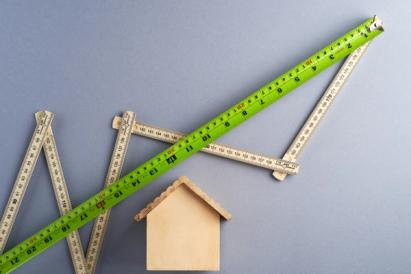What are HOA Fees and How Do They Impact the Price of Your Home?
Written by:
Lauren Hargrave
Lauren Hargrave
Personal Finance Writer
Lauren Hargrave is a writer from San Diego who focuses on technology, finance, and healthcare. She worked in finance for seven years before pivoting to a career in writing, and now, instead of putting numbers into spreadsheets, she writes about them instead.
See full bio
Fact Checked by:
Dan Silva
Dan is the Vice President of Marketplace Lending at Own Up. Throughout his career, he has held executive leadership positions in the mortgage and banking industry.
See full bio

Fast Links
When you’re looking for a home to buy, there are many considerations that can dominate your focus: the price and location of the home, the condition and design of the home, and the loan amount and interest rate are just a few.
However, there is one important factor that may not be on your radar: a homeowners association (HOA). Knowing if the property you want to buy has an HOA is critical, as there may be a set of rules and expenses affiliated with ownership of the property.
Let’s take a look at HOAs, HOA-related fees, and how they may impact your budget.
What is a Homeowner’s Association?
A homeowner’s association is a nonprofit group set up by the developer of a condo building or master-planned community. Typically, the local government requires developers to set up these types of groups prior to approving the developer’s plans because they want to ensure that all residents will receive basic utilities and the communal areas and amenities will be maintained.
The HOA comprises all of the property owners in the geographic area that the HOA covers. This could be a community of single family homes, a gated community, a condo building, a townhome community, or a master-planned community (i.e. track homes). If you buy a home that is part of community development like this, you automatically become a member of the HOA and are subject to its fees and rules.
Who Manages the HOA?
The developer establishes the initial rules for the HOA – such as bylaws, which lay out the responsibilities of the HOA, and a declaration, which spells out particulars about the property – before turning over its management to the homeowners.
Typically, once the developer turns over the property, an elected HOA board made up of volunteer residents will govern the community. Some HOAs hire an external management company to take on the role of enforcing rules, collecting association dues , paying for communal maintenance, and ordering special repairs, but there still needs to be a board in place to approve any work or decisions involving the community.
The HOA board can decide they want to make changes to the initial rules and put those changes up to a vote by the entire HOA membership. The HOA board must also establish and approve the annual budget for maintenance and utilities, ensure that maintenance is completed, as well as decide which vendors to hire. All HOA boards have a fiduciary responsibility to the other members to use the association fees responsibly.
What Types of Rules Do HOAs Have?
It might surprise you to learn that buying your own home may not mean you can do whatever you want with it. That’s because when master-planned communities and condo buildings are built, they are done so with a certain aesthetic in mind. The role of the HOA is to ensure that all residents maintain that aesthetic, and they do so by assessing monthly fees for routine maintenance of common areas (such as communal lawns, stairwells, roofs, windows, etc.), and in some cases, utilities. They may also enforce rules about how residents maintain their own properties within the HOA jurisdiction and the changes they can make to them.
Any rules to which you will be subject as part of the HOA should be represented in the community or building’s homeowners’ agreement. Make sure to read the agreement carefully to assess the rules to which you are agreeing when you purchase the home. Consider whether you want to abide by them for your tenure there.
Here are some examples of rules an HOA can enforce:
Landscaping Maintenance
If your grass is dying or bushes become overgrown, you may receive a letter from your HOA to tidy up your yard.
External Paint Color of Your Home
If you want to paint the exterior of your home a new color scheme, you may need HOA approval.
Exterior Home Tidiness
Your HOA may have rules about keeping the front exterior of your home free of debris.
Changes to Your Home Footprint
If you purchase a home in a master-planned community, there may be rules about increasing the overall square footage or footprint of your home. This can be as simple as adding a shed to your backyard. If you live in a condo building with shared walls or for example, where your floor is someone else’s ceiling), you may need to ensure your construction doesn’t negatively impact the other owners in your building.
Whether or Not You Can Rent Your Property
There may be limitations on the number of units that may be up for rent at a given time, or whether homeowners may rent out their units at all.
What are HOA Fees?
There are typically two types of fees that HOAs assess:
1. Homeowner Association Fees
These are monthly or yearly fees that are designated for:
- General operating expenses (like management company fees),
- Maintenance of common amenities (like lawn care, snow removal, and pool maintenance)
- General repairs
- Sometimes utilities like trash removal.
2. Special Assessments
These are additional contributions the HOA board may implement in order to make large – and sometimes unexpected or nonroutine – repairs. Special assessments may cover things like:
- Roof repairs ( e.g. for a condominium building or clubhouse)
- Swimming pool repairs for a communal pool
- Plumbing issues for communal spaces or a condominium building (such as a water heater)
- Flooding of communal spaces.
How Much Do HOAs Cost?
HOA fees can range from as little as $100 per month (or even less) to more than $1,000 per month. It really depends on the property.
The actual monthly or annual fee homeowners pay varies based on:
- The property location (some states and counties have higher labor and materials costs than others)
- The property type or community (a luxury condo building might have higher HOA fees than a single family community)
- The types of expenses and amenities the HOA fee maintains. (Are you just contributing to landscaping and annual building maintenance, or are you also paying for a doorman, a parking lot, community pool maintenance, and access to a gym?)
Prior to putting in an offer on a home, make sure to read the homeowner’s agreement so you’re aware of what additional expenses you’re signing up for.
How HOA Fees Affect Your Home’s Affordability
Simply put, an HOA fee is an additional monthly cost. Typically, these fees aren’t included in your mortgage, but sometimes your loan servicer can be open to adding the HOA fees to the escrow portion of your monthly payment. They’re also not tax-deductible unless you’re buying a rental property.
Required Monthly Expenses
When you’re calculating the cost of your home, you will want to include HOA fees as part of your monthly expenses along with the cost of the mortgage, property taxes, and homeowners’ insurance.
Sometimes the true cost of the HOA fees isn't as high as it seems because the fees include payment for utilities like trash collection and sewer, which you would have to pay for anyways. But the only way to tell is by reading the homeowners’ agreement carefully, learning what your fees are going toward, and if those expenses are reasonable for your budget.
Unexpected Costs
Another way HOAs can affect your home’s affordability is when a special assessment is required. The amount of a special assessment will be determined by the type of work being done on the property and the number of residents by which the cost is divided; however, regardless of how large or small the assessment is, a surprise bill could severely impact your monthly budget – especially if it’s thousands, or worse, tens of thousands of dollars.
Do I Have to Pay the HOA Fees or Special Assessment Fees?
Yes, you do. Failure to fulfill your financial obligation can have varying consequences (all of which should be laid out in your homeowners’ agreement), impact your finances, and even impact your credit. For example, the HOA can take any of the following actions in order to retrieve the money you owe: assess late fees, file a lawsuit, evict you from your unit or foreclose on your property, or place a lien on your property.
Missing HOA payments can also impact the financial health of the association or postpone projects that the association fees cover.
How are HOA Fees Calculated?
The HOA board likely sets its budget for the following calendar year in the fall. To do so, they should assess the expenses for which they collected this calendar year and whether or not any of the vendors they use are raising prices. The HOA board will also assess whether or not there are any known major repairs that are on the docket for the coming year. Other factors may also come into play, such as whether the association wants to put any funds into a reserve account, which acts like a savings account for large or unanticipated future costs.
The HOA will calculate the total they believe they will need in the following calendar year and divide up those payments among the community residents based on the equation given in the homeowners’ agreement. The equation the HOA uses can vary depending on the property.
HOA fees are typically calculated one of three ways:
- Equal share (so if there are 50 homes, the cost is divided by 50)
- The residents’ pro rata share of the costs based on square footage (sometimes called percentage of ownership)
- The residents’ pro rata share based on the value of the home.
HOA fees typically increase every year to every few years due to inflation or increasing operating costs.
The Pros and Cons of an HOA
Buying a home, condo, or townhome in a community that has an HOA can be a benefit, especially if the HOA offers amenities you enjoy and pays for necessary services that you would have to either pay for or complete yourself. They can also help to divide expenses of larger projects (such as a new roof or structural repairs) that you may not be able to cover if you had your own single family home. Last, HOAs can help maintain property values in the community by ensuring homeowners keep their properties looking nice.
On the other hand, HOA fees can also make a home unaffordable if the monthly assessments or special assessments get too high, or if you experience financial hardship.
The Bottom Line
The best way to decide whether an HOA is a deal breaker is to take a holistic view of your financial details. Before making a decision, ask yourself these questions:
- How do the fees impact your monthly budget?
- Do you have room in your finances for unexpected expenses in the instance a special assessment is required?
- Do you have an emergency savings built up that could help cover the HOA fees should you lose your job?
Since the homeowners’ agreement is a legal contract that you’re financially obligated to fulfill, you’ll want to make sure you’re comfortable meeting that obligation prior to purchasing the home.


